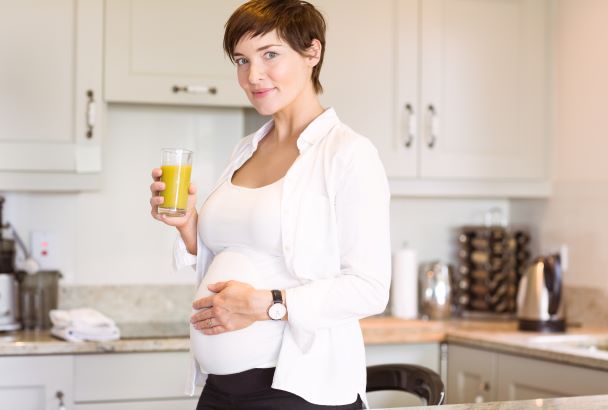
The question that is on your mind: Is pregnancy in your 40s healthy or harmful?
The answer is complicated. While women in their 40s can enjoy a healthy pregnancy and birth, most women will find it much harder to conceive naturally in their 40s, and are more likely to experience miscarriages, high-risk pregnancies, difficult labors and more.
We genuinely wish that we could tell women of all ages that there is no risk to waiting until you’re in your 40s to get pregnant. But unfortunately, statistics don’t lie. The statistics say loud and clear that the best time to conceive, be pregnant, and give birth is in your 20s.
It is still possible, and even probable, up to your mid 30s to have a safe and easy pregnancy. However, by the time you reach your 40s, the odds become much higher to overcome.
Here are some of the issues women in their 40s face when trying to get pregnant:
-
Infertility
- At age 40 and up, women have reduced fertility potential as compared to that seen in younger women. In addition, women at or above the age of 40 have significantly lower success rates with fertility treatments such as in vitro fertilization (IVF)
-
Genetic Disorders
- Genetic issues and disorders also spike after a woman is in her 40s. By this time, your remaining eggs have a much harder time dividing properly, which contributes to a higher rate of genetic abnormalities.
- The numbers of babies with chromosomal disorders continue to go up every year after their mothers are over the age of 40.
-
Miscarriage
- It is hard for doctors to get an exact percentage of miscarriages across the general pregnant population. This is due to the fact that miscarriages often happen before a woman even knows they are pregnant.
- What we do know is that miscarriage rates increase significantly as a woman ages. In fact, after age 35, the chance of miscarriage doubles compared with women in their 20s and 30s.
- The main reasons for these miscarriages are chromosomal abnormalities.
-
Pre-eclampsia
- Pre-eclampsia is a condition that usually begins after a woman has reached her 20th week of pregnancy. It is characterized by high-blood pressure, excessive fluid retention, and high protein levels in the urine.
- This can result in eclampsia, which is toxic and can be fatal. Women who are having a baby for their first time in their 40s are much more likely to develop pre-eclampsia.
-
Hard Labors
- If you are in your 40s, it can be somewhat understandable why labor is harder. Even if you eat well, are generally healthy, and exercise regularly, it is still hard to bounce back as fast, your general stamina is lower, and your healing ability may be slower than it was in your 20s and 30s. For this reason, labor can be strenuous for women in their 40s, especially if it’s your first time giving birth. Women in their 40s are more prone to experiencing extended second-stage labor and fetal distress.
While this news may be hard, it is much more common that women are having babies in their 40s than it ever has been before. If you are in your late 30s, or even in your early 40s, and are interested in getting pregnant, please reach out and make an appointment with a fertility specialist in your area. Our team at Reproductive Resource Center of Kansas City would be happy to answer any questions you have, and help you discuss your options. Please reach out and contact us today.
 Patient Portal
Patient Portal